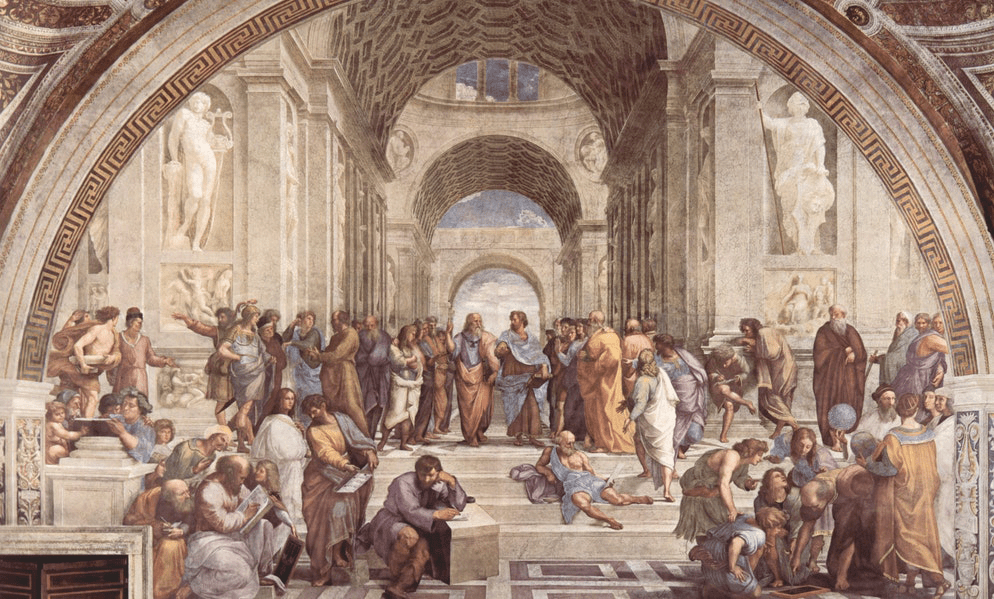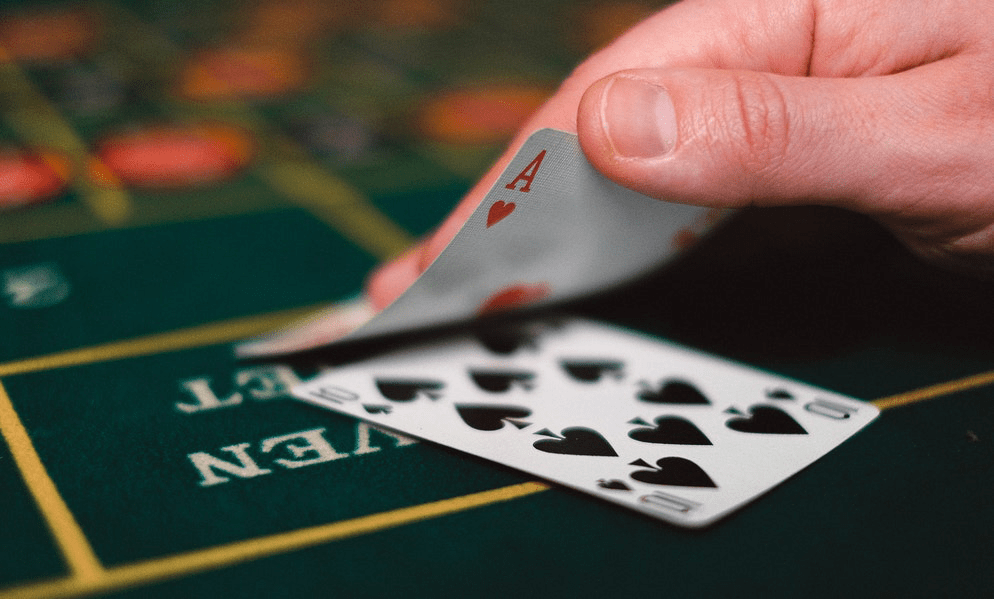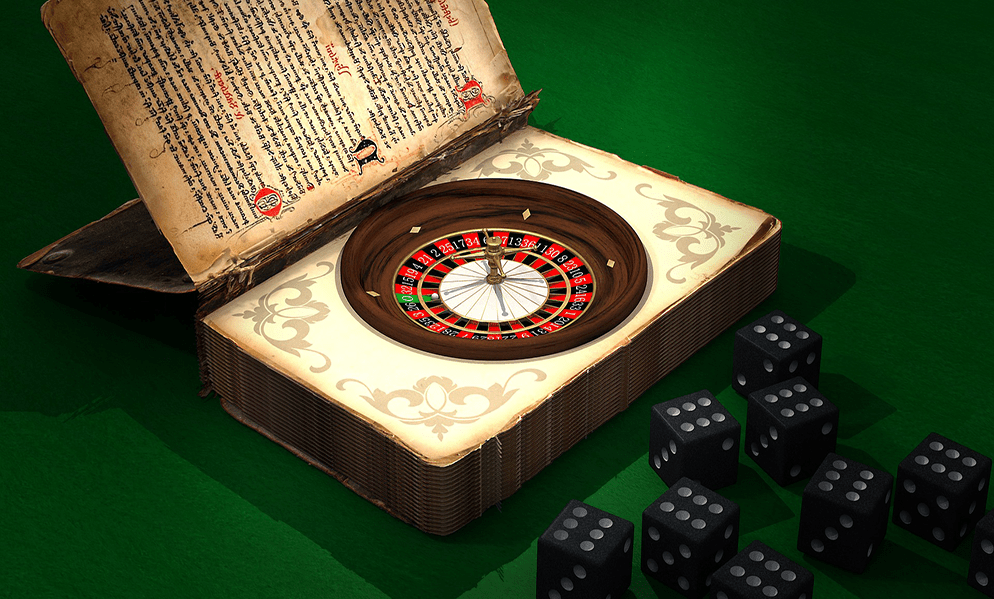Last updated on June 11th, 2024
When we talk about the history and the origins of gambling, it wouldn’t be far-fetched to say that this form of entertainment has been present ever since the dawn of man. That is because regardless of the time period, people simply loved the idea of making bets, i.e. challenging one another to see who was more in favour of the Gods and fortune. Naturally, we’ve come a long way since the days when gambling was just one of the ways to make life more interesting, being that today gambling is a multi-billion industry that is present in pretty much every corner of the globe. Yet, in order to fully understand how gambling evolved and how we got where we are in 2022, it would be best if we go back to the beginning and see how it all started. Let’s dive in.
China & The Book Of Songs – 2300 BC
Well, the one thing that most history records can agree upon when it comes to the history of gambling is that it officially started somewhere around 2300bc in ancient China. That is when it comes to the first documented and full-proof evidence about the history of gambling since many historians assume that people started gambling even further back in history, only it wasn’t properly documented. Anyway, the betting games that the ancient Chinese used to play were most likely games of chance, as depicted in the legendary “Book of Songs” which is part of the Chinese heritage. In it, there is a reference to a game that is played with wooden tiles, or “the drawing of wood” as it is written in the book, which many historians believe to be the blueprint of the first-ever lottery game.

Not only that, but there are also slips from the game of Keno that are about 200 BC old, and it is believed that they were used in the same way as lottery tickets, most likely as an incentive for the workers building the Great Wall of China. In fact, using lotteries as civic solutions was so successful, that it continued to be present throughout various stages of the history of China, with this model even inspiring some rather important organizations from the West as well. More notably, we are talking about the world-renowned universities of Yale and Harvard, and the fact that they were both built with lottery funds, something that goes on even to this very day.
Dice Games & Gambling In Greece, Egypt & Rome – 500 BC
When we speak of ancient civilizations and gambling, the Greeks play a rather significant role in moulding the history of this lucrative form of entertainment. The most interesting part about the Greek gambling records is that they depict the first-ever documented game of dice to be a product of a myth or a legend. Yes, you read that right. The legendary Greek poet and philosopher, Sophocles, wrote down that the game of dice was actually invented during the legendary battle for Troy, by a certain mythological hero. And while this does seem like it is a bit far-fetched, it is nevertheless the first-ever mention of dice in Greek history, and such a claim should definitely be treated with the utmost respect.
Speaking of the true origins of the game of dice, however, the first records in history that actually show the beginning are from 3000 BC in Egypt. More specifically, the oldest pair of dice that were ever found were from this period in time, and they were located in an ancient Egyptian tomb, most likely belonging to a member of the upper classes of the society. Yet, the background of dice becomes even more interesting when we go to ancient Rome, being that it was one of the most popular forms of gambling among the people at the time. So popular, in fact, that the Roman state outright banned dice gambling and all forms of gambling with real money for that matter. As a result, the penalty for the perpetrators was to pay 4 times the stake they made during the illegal gambling activity.

Due to the prohibitions and the huge fines, in a rather crazy turn of events, the ban inspired the gambling enthusiasts of Rome to come up with one of the most ingenious ideas ever – the first casino chips in history. In order to avoid trouble and still be able to gamble freely, the Romans came up with wooden chips that persuaded authorities that no real money was involved in the process of gambling. Not only did this actually work, but it also served as an inspiration for basically every casino game that you play at land-based casinos, being that nowadays we simply cannot imagine casino games without chips.
Card Games Inspired by Paper Dominoes – China 800s
The one thing we know about the history of card games with absolute certainty is that they originated somewhere in the 9th century in China, and that is pretty much it. Unfortunately, we couldn’t find any particular details about the rules of the first card games played in this time period. However, there are several theories from various historians that seem to paint at least some image of the history of card gambling in ancient China.
More specifically, there are those who believe that the first card games were quite similar to the trading cards that many kids are playing today, meaning that the cards were both the stake and the game. Moreover, there are some historians that even suggest that the first game of cards was actually a paper version of the legendary Chinese game domino. Regardless, one thing is certain. The card games, especially the card decks that we are using today are nowhere near the likes of the first card games that emerged in Ancient China.

Baccarat – Italy & France 1400s
Well, when we speak of the first casino game to ever grace the gambling parlours then we definitely have to include the legendary game of Baccarat. The first mention of this ever-popular two-card baccarat as we know it today was first mentioned around the 1400s, when the game was brought from Italy, its place of origin, to France. Ever since then, this highly popular game has been subject to different changes and evolutions over a period of hundreds of years.
However, the most impressive part is that despite the countless variations, the two-card baccarat is still one of the most popular versions even today. As a result, you shouldn’t be surprised that every casino in the world offers this highly entertaining casino game, despite the fact that the best way to enjoy this game is to watch it as a spectator, rather than as a player.
Blackjack – Spain or France 1600s
Well, the origin of the mega-popular game of Blackjack is a little bit tricky to trace. The reason for this is that there are several different theories as to the true background of this game, yet they all have one thing in common – they are originally from Europe. One of the most popular theories about blackjack is that it comes from an old Spanish game that is called ventiuna (21), with this game even being mentioned in one of the most popular books of the legendary Spanish author, Miguel de Servantes, Don Quixote back in 1601. Yet, there are those who oppose this claim, and state that the game derives from another game that is called trente-un (31), and that it comes from France, not Spain. And there are even historians who state that the original game is actually quinze (15), and not any of the stories above.

From here, the best conclusion would be that the game of blackjack actually originates from the French game of ving-en-un (21 in French), and that it emerged somewhere in the 17th century. As a matter of fact, this is the exact game that reached the shores of New Orleans along with the first French settlers, making ving-en-un the most likely forefather of the blackjack that we know today. The biggest and most obvious difference between that edition and modern blackjack is the name, being that the latter got its name in the 1930s after the casinos of Nevada came up with this catchy name thanks to some rather unique promotions from that time. In particular, the unique promotions included paying the customer 10 to 1 odds whenever they win via a Jack of Clubs, Jack of Spades, or an Ace of Spades.
Understandably, these rather unique and low odds didn’t last for much longer and eventually were abandoned altogether, however, they are still the reason why we call the ever-popular game of blackjack the way we do today, and as such, it certainly plays a huge part in the overall history of gambling.
The First Formal Casino House – Italy 1638
If we take into account that some of the most popular casino games such as blackjack originate from Italy, then it shouldn’t be a surprise that the first-ever gambling houses were also established in Italy, at the beginning of the 17th century. Moreover, one of the first such gambling establishments was the “Ridotto”, it was opened up in 1638 in Venice for the purpose to provide a supervised and regulated gambling environment to all visitors of the annual carnival, in order to avoid adding trouble to the usual carnival madness. Consequently, it took about two centuries before the first true casinos started to emerge all throughout Europe, most notably in countries such as France, England and Italy.
And while in Europe casino gambling was emerging as a regulated activity at specially designated casino houses, in the US the situation was a bit more different. It is not that the US citizens weren’t gambling, only it wasn’t done in specially designated casino houses such as the ones in Europe. However, the American solution to this problem was the steamboats casinos that operated along the banks of the Mississippi River, which are also noted as the first formal casino establishments in the history of US gambling, and as such, one of the biggest highlights of American gambling.
Little Wheel – Paris 1796
The little wheel, as it was called around the city of Paris, was the unofficial name of the first roulette wheel in history. As a matter of fact, the game of roulette has a rather interesting origin story, being that it exists thanks to a series of inventions and alterations. It is believed that roulette is a byproduct of the Italian game Birbi and one of the particular gaming wheels invented back in 1720. According to many, roulette exists thanks to a prominent French physicist and mathematician, Blaise Pascal, who invented the roulette machine while in search of the perpetual motion machine. This perfect accident resulted in the creation of what we know today as the roulette wheel, a game that became an instant hit right since its induction through the casinos in Paris.

Yet, there is another individual aside Blaise Pascal that deserves credit for his contribution to perfecting the game of roulette. While living in the German spa casino town of Bad Homburg, Louis Blanc, a known French entrepreneur and casino operator, along with his younger brother Francois are credited for creating the first single zero roulette wheel, with the purpose of competing with the casinos that offered roulette wheels with only two zero digits.
The revolution in roulette gaming began after Louis and his family moved to Monaco where got a job as the head of the Monte Carlo casino. It was here that Blanc decided to try his invention, and with quite the success, we might add. Soon after becoming a big hit in Monte Carlo, the single-digit zero roulette wheel quickly spread around every corner of the globe, becoming the standard choice for the majority of casino players, with the exception of the USA, Canada, South America and the Caribbean.



